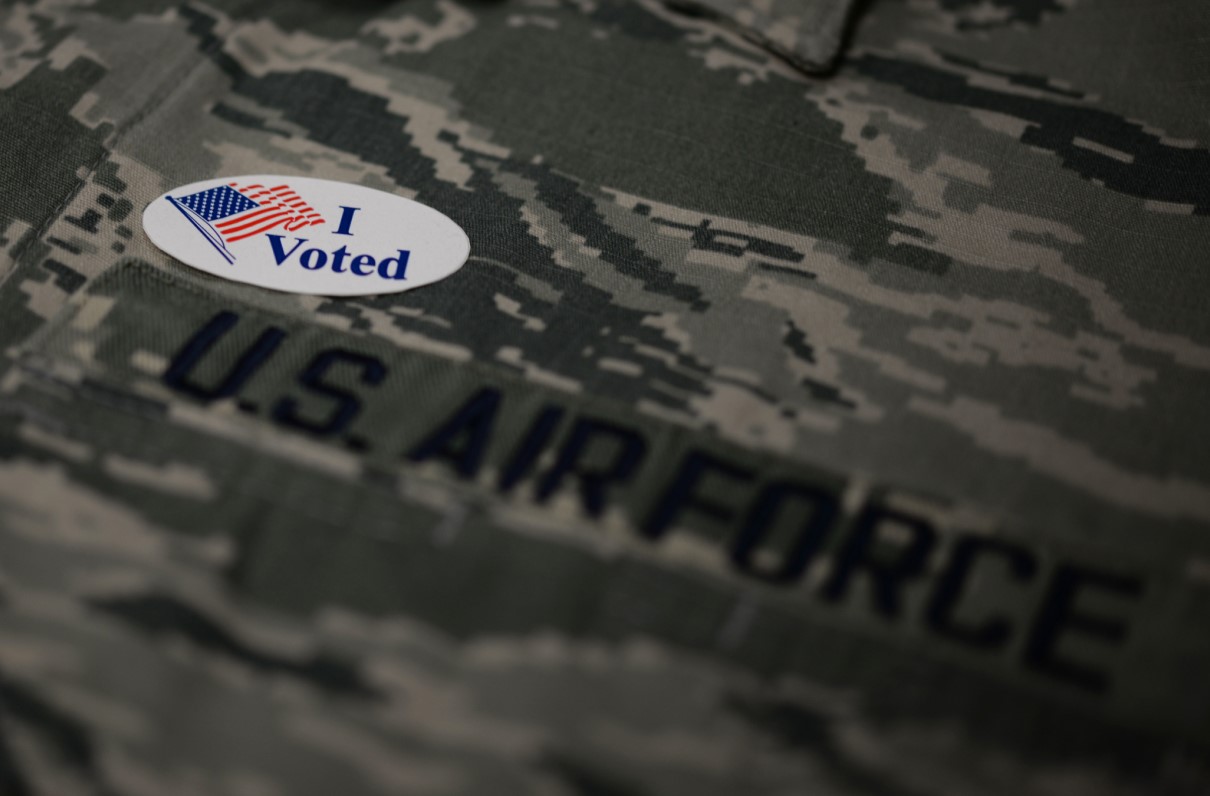If you’re serving today, before you head out for a campaign rally or publish that social media post to support your candidate, make sure you know the rules.
MOAA has compiled some basic guidance below, pulling from the 2008 DoD directive (DODD 1344.10) on political activity in the armed forces as well as materials and regulations cited by DoD in response to MOAA’s questions about the process.
Is your topic of interest not covered below? Servicemembers with specific questions concerning political activity “should contact their service’s closest installation legal office,” DoD spokesperson Lisa Lawrence told MOAA.
In a follow-up email, Lawrence noted "any activity that may be reasonably viewed as directly or indirectly associating the DoD or DHS (in the case of Coast Guard) or any component of these Departments with a partisan political activity or is otherwise contrary to the spirit and intention of DODD 1344.10, must be avoided."
[ELECTION 2020: Presidential Candidates Answer MOAA's Questions]
Q. I’m serving on active duty. What is allowed and what is prohibited?
A. You may express personal opinions about political candidates, make monetary contributions to a campaign, sign petitions to place a candidate’s name on a ballot, and attend political events. However, in these instances, you may not do so in an official capacity. Active duty members are not permitted to engage in partisan political activities, such as marching in a partisan parade.
Q. Can I wear my uniform to political rallies?
A. No. All members of the armed forces – and veterans – are prohibited from wearing military uniforms at political campaigns, election events, and partisan events, per DoD guidance. This rule does not apply to joint armed forces color guards at the opening of ceremonies or national conventions for the Republican, Democratic, or other political parties formally recognized by the Federal Election Commission.
[ELECTION 2020: Presidential Candidate Biographies]
Q. Can I “like” a candidate on social media?
A. Yes. Servicemembers can express their personal views on public issues or political candidates on social media – just as they are permitted to write a letter to the editor of a newspaper. However, servicemembers cannot post or make direct links to a political party, partisan political candidate, campaign, group, or cause because that activity is the equivalent of distributing literature on behalf of those entities or people, which is prohibited.
Servicemembers can “become a friend” or “like” a Facebook page or follow a social media account of a political party or candidate, but must refrain from suggesting other people follow the page. People who are not on active duty are not subject to social media restrictions as long as their actions do not create the perception of official sponsorship, approval, or endorsement by DoD or their service branch.
[RELATED: MOAA Wants YOU to Vote!]
Q. Is there an office that monitors social media to ensure servicemembers are following protocol? What’s the punishment for violating these rules?
A. DoD did not provide specific answers to MOAA’s questions about enforcement of these regulations or how servicemember behavior was policed by DoD.
DoD Directive 1344.10 does not cite any specific punishments or corrective actions, but does say violations could be punished under the Uniform Code of Military Justice (UCMJ) under Article 92, Failure to Obey an Order or Regulation, which carries a maximum punishment of dishonorable discharge, forfeiture of all pay and allowances, and confinement for two years.
Q. How does DoD differentiate between social issues and political issues?
A. DoD did not provide specific answers seeking definitions of certain types of political activity. In a statement to MOAA responding to questions, Lawrence cited a portion of DoD Instruction 1325.06 stating servicemembers “must not actively advocate supremacist, extremist, or criminal gang doctrine, ideology, or causes, including those that advance, encourage, or advocate illegal discrimination based on race, creed, color, sex, religion, ethnicity, or national origin or those that advance, encourage, or advocate the use of force, violence, or criminal activity or otherwise advance efforts to deprive individuals of their civil rights.”
The instruction also forbids servicemembers from participating in off-post demonstrations where “violence is likely to result.”
MOAA Knows Why You Serve
We understand the needs and concerns of military families – and we’re here to help you meet life’s challenges along the way. Join MOAA now and get the support you need.

